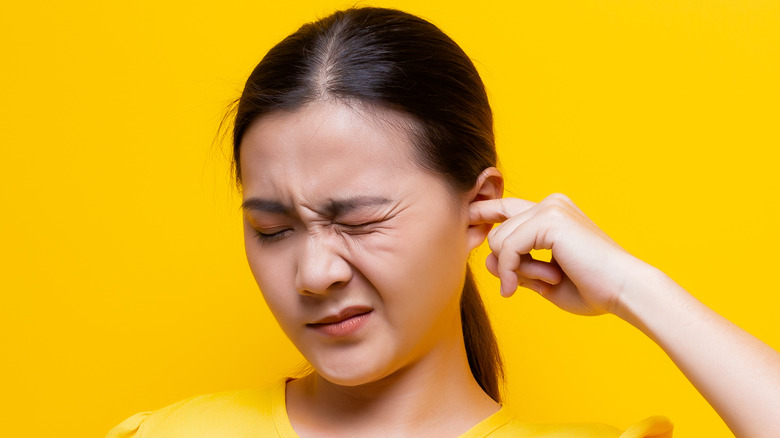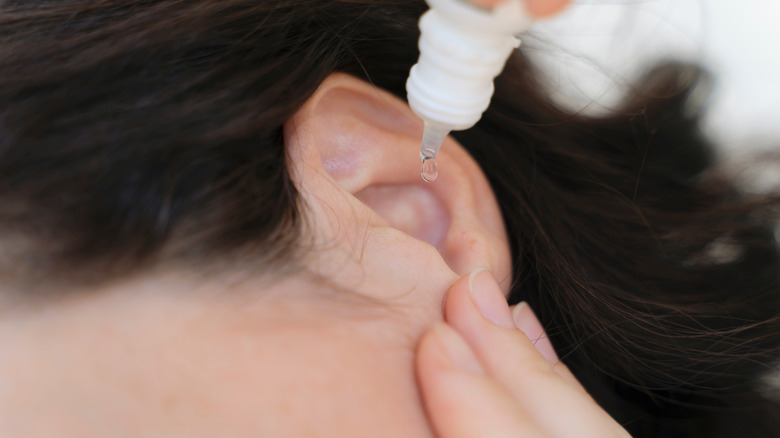What It Really Means When Your Ears Itch
Everyone has likely experienced an itchy ear at some point in their life. There are many reasons why our ears get itchy, and some can be indicative of underlying conditions. A common reason why we feel the urge to scratch our inner ears is earwax buildup, according to WebMD. The ear canal produces wax to collect dead skin cells and other debris that make their way into our inner ear and then expels the wax naturally. However, when our ears produce an overabundance of wax or aren't able to get rid of it, they can start to feel itchy.
Another reason you might experience itchy ears is in the case of an allergic reaction. You may find that the skin in your ear doesn't agree with a new shampoo or hairspray. Sound-blocking earplugs made of foam or wax can also provoke an allergic reaction. If you enjoy swimming or spend a lot of time in the water, you might come down with a case of swimmer's ear, which is yet one more contributor to itchy ears. Other causes include skin conditions, such as eczema and psoriasis, food allergies, and ear infections caused by viruses or bacteria (via WebMD).
The good news is that no matter the cause of your itchy ears, there are various treatments that will help you find relief. You should always visit a doctor to determine the root cause of the itchiness before attempting any home remedies or treatment options, especially if the itchiness is ongoing.
How to get rid of itchy ears
Regardless of the reason behind your itchy ears, you should never use an object to relieve the itch, according to UTHealth. This includes Q-tips, toothpicks, pens, or anything else of this nature. You can end up inflicting trauma on your ears. In many cases, a simple steroid ear drop or rubbing alcohol will relieve the itchiness and discomfort, but you will also need to use a specialized product catered to the underlying cause of your itchy ears.
If the reason for your itchiness is an ear infection, you will need a prescription for a specific ear drop with antibiotic properties, according to WebMD. Earwax buildup can be treated with a different type of ear drop designed to break up the wax and allow it to exit the ear canal. Eczema and psoriasis are commonly treated with ear drops. In some cases, doctors may prescribe an additional steroid pill to reduce the inflammation caused by these conditions.
Swimmer's ear will require treatment to dry out the excess water in the ear canal. If a beauty product is causing a skin allergy in your ear, you'll want to stop using it immediately. Finally, food allergies may require additional testing and the use of an epinephrine pen. Make sure to alert your doctor immediately if the product you use to treat the itchiness causes pain or hearing loss.


